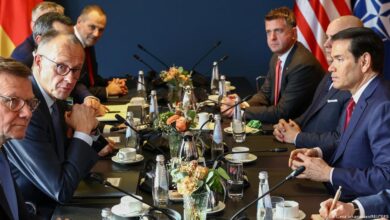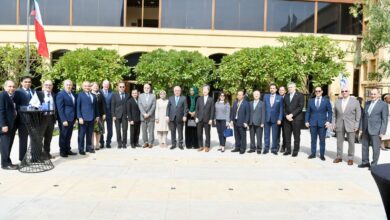
Minister of State for Telecommunications Affairs Omar Al-Omar announced on Thursday the launch of the “Artificial Intelligence Ethics Assessment Tool”, developed by the Digital Cooperation Organization (DCO), which he currently chairs.
The announcement came during a high-level forum held in Geneva as part of the World Summit on the Information Society and the AI for Good Summit.
The newly launched tool is designed to help developers, policymakers, and organizations evaluate the ethical and human rights impact of AI systems. It guides users through a self-administered questionnaire that covers seven key risk categories, aligned with the DCO’s principles on AI ethics.
Minister Al-Omar explained that the tool aims to turn ethical commitments into practical action, encouraging broader cooperation across sectors to ensure AI technologies are deployed ethically and responsibly. He noted that the tool was developed through comprehensive research and consultations with global experts in AI governance.
The DCO stated that this initiative marks a significant step in turning its AI ethics framework into tangible, actionable guidelines, now supported by the organization’s 16-member states.
Dima Al-Yahya, Secretary-General of the DCO, emphasized that ethics in AI are essential—not optional. “Artificial intelligence without ethics is not progress,” she stated, “but a threat to human dignity and shared values.”
She highlighted the tool’s holistic design, noting its ability to generate custom recommendations for users based on their role—whether developer, regulator, or system implementer. The tool tackles issues like algorithmic bias, data misuse, and lack of transparency, ensuring AI systems respect privacy, fairness, and accountability.
Al-Yahya stressed that the tool serves not just governments but all players in the digital economy, helping them balance innovation with ethical responsibility.
At the event, Alaa Abdel-Aal, Head of the Digital Economy Intelligence Directorate at the DCO, remarked, “The future of AI won’t be shaped by the speed of code, but by the ethical values we choose to embed in it.”
The event was attended by a wide range of international ministers, AI experts, policymakers, and civil society representatives, underscoring the global relevance of the initiative.












